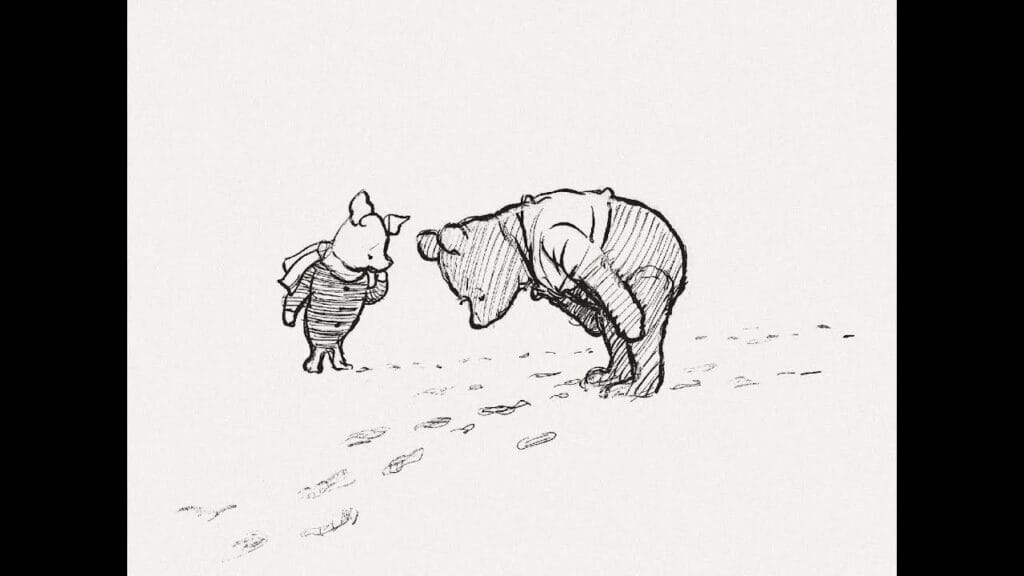
Brief Background of Wes Bentley
Wes Bentley is a multifaceted talent, recognized for his captivating performances and unique on-screen presence. Best known for his role as Jamie Dutton in the acclaimed series “Yellowstone“, Bentley has mesmerized audiences with his ability to portray complex characters. He first gained fame in the late 1990s with his standout role in “American Beauty,” where his portrayal of a troubled teenager earned him critical acclaim. Over the years, Bentley has refined his craft across various genres, showcasing his versatility in film and television alike. Beyond his impressive resume, Bentley’s personal journey adds another layer to his story. He overcame struggles with addiction and has since embraced a more fulfilling life, channeling his experiences into his roles.
Wes Bentley’s “The Tao of Pooh”
Wes Bentley explains that at the moment, there are many things he enjoys, but certain items have played a significant role in shaping his identity. He admits that he has a bit of an obsession with the book “The Tao of Pooh”. “I know this is a little cheesy, but it changed my life”, Bentley confesses. He recalls that before picking up the philosophical read by Benjamin Hoff he was a “temperamental kid” who had “an attitude.”
However, his perspective changed when he discovered Taoism through Winnie-the-Pooh. “I read that book, and in just 15 minutes, it transformed my life,” he admits. “It helped me realize that some things are out of my control, and that I don’t have to respond.”
Introduction to “The Tao of Pooh”
Published in 1982, “The Tao of Pooh” by Benjamin Hoff introduces readers to the harmonious principles of Taoism through the lens of beloved characters from the Hundred Acre Wood. This whimsical yet profound book cleverly uses Winnie the Pooh to explain complex philosophical concepts in a relatable manner. By linking Pooh’s simple wisdom to Taoist thought, Hoff invites readers to explore a more peaceful way of living.
- What if Pooh is not just a bear but also a sage?
- Can a children’s story reveal the mysteries of life?
With charm and humor, Hoff presents a delightful narrative, making Taoism accessible and enjoyable for everyone.
“The Tao of Pooh”: Overview
Author and Publication Details
“The Tao of Pooh” springs from the imaginative mind of Benjamin Hoff, an author and philosopher who sought to marry Eastern philosophy with Western charm. First published in 1982, the book quickly gained attention and remains a beloved classic in philosophical literature. Hoff’s unique approach not only entertained readers but also sparked a broader interest in Taoism.
- Author: Benjamin Hoff
- Publication Year: 1982
- Key Themes: Taoism, simplicity, happiness
In blending Pooh’s innocence with profound teachings, Hoff crafts an engaging narrative that charms both children and adults alike.
Synopsis of the Book
At its core, “The Tao of Pooh” uses the character of Winnie the Pooh to illustrate the principles of Taoism, emphasizing simplicity and living in harmony with nature. Through delightful anecdotes involving Pooh and his friends, Hoff explores key Taoist ideas such as ‘wu wei’ or ‘effortless action.’
- Pooh, the embodiment of simplicity, teaches us to flow with life.
- Eeyore’s melancholy reflects the resistance against embracing the present.
By weaving humor into philosophy, Hoff invites readers to discover a path to inner peace and contentment, proving that one doesn’t need to overthink life to enjoy it.
Exploring Taoism in “The Tao of Pooh”
Understanding Taoist Principles
Diving into the heart of “The Tao of Pooh,” we encounter the simple yet profound principles of Taoism, a philosophy that encourages harmony, balance, and naturalness. Key principles include:
- Wu Wei: This concept signifies ‘non-action’ or ‘effortless action,’ suggesting that we should flow with the natural rhythms of life rather than force our will against them.
- Yin and Yang: Symbolizing balance, this principle teaches that opposites complement each other, creating a harmonious existence.
Understanding these principles can help us live more fully and authentically, embracing life’s unpredictability with open arms.
How Taoism is Portrayed in the Book
In “The Tao of Pooh,” Benjamin Hoff artfully showcases these Taoist concepts through the delightful antics of Winnie the Pooh and his friends.
- Pooh’s straightforward, carefree nature exemplifies the idea of simplicity in Taoism.
- Tigger’s exuberance represents the joyous, unpredictable element of life, while Eeyore often embodies the struggle against it.
By weaving these characters’ traits into the narrative, Hoff invites readers to appreciate the wisdom in living effortlessly, teaching us that sometimes, the best approach is simply to enjoy the journey, much like Pooh enjoys his honeypot—without a care in the world!
Wes Bentley reads “The Tao of Pooh” by Benjamin Hoff